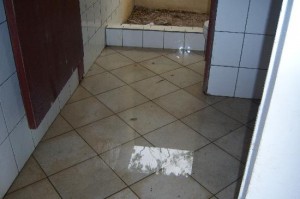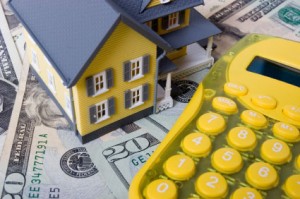Posted by Teresa on August 29, 2012 under Housing Trends, Rental Market | 
 Whether you’re a parent of a college student or an investor in real estate, some college towns are more attractive than others. In some of the country’s hottest rental markets, landlords who own rental housing are seeing low vacancies and higher rents, while parents of college students might be finding it difficult to buy an investment property for their kids to live in while in school.
Whether you’re a parent of a college student or an investor in real estate, some college towns are more attractive than others. In some of the country’s hottest rental markets, landlords who own rental housing are seeing low vacancies and higher rents, while parents of college students might be finding it difficult to buy an investment property for their kids to live in while in school.
Buying a rental property often makes more sense for parents than paying ever-rising costs of room and board or off-campus rent. But they may be competing with experienced landlords when it comes to purchasing reasonably priced properties in today’s competitive markets.
According to Realtor.com, the following markets show promise for parents and other real estate investors:
| City |
Median Home Price |
Average Rent |
| Boston |
$334,900 |
$3,084 |
| Washington, DC |
$395,000 |
$2,637 |
| Los Angeles |
$358,000 |
$2,290 |
| Princeton, NJ |
$265,000 |
$2,056 |
| Chicago, IL |
$194,000 |
$1,630 |
| Providence, RI |
$259,000 |
$1,527 |
| Philadelphia, PA |
$234,900 |
$1,475 |
| Pittsburgh, PA |
$140,000 |
$1,122 |
| Atlanta, GA |
$175,900 |
$1,187 |
Of course, owning rental property and leasing to college students presents another set of challenges. Study the market, consult your tax, legal and financial advisors, and decide whether the pros and cons work out for your needs and personal situation.
No matter who you are leasing to, you need to protect your rental property and assets with tenant background checks. Proper tenant screening will ensure you are leasing to the best possible tenants.
Posted by Teresa on August 24, 2012 under Landlord Tips, Lease and Rental Agreements, Tenant Screening & Background Checks | 
 Most experienced landlords will tell you that tenant screening is the most important aspect of renting property. Failing to screen prospective tenants causes more problems than just about anything else. After all, each tenant is a potential liability to a landlord.
Most experienced landlords will tell you that tenant screening is the most important aspect of renting property. Failing to screen prospective tenants causes more problems than just about anything else. After all, each tenant is a potential liability to a landlord.
Thoroughly checking up on tenants’ identification, credit history, criminal background, work history and previous rental situations can give you a clear picture of the tenant you are about to trust to live with your property and among your other tenants.
Here are some basic tenant screening tips from real landlords:
- Don’t skip the tenant screening process, no matter how nice or trustworthy a prospective tenant seems.
- Treating each applicant equally will help you stay within the law. This is another good reason to screen every tenant.
- Look at credit history, criminal history, evictions, judgments, bankruptcies and sex offender status.
- Fake IDs are easy to buy or make, so check the applicant’s Social Security Number and identity to be sure they are who they say they are.
- If the applicant is local, drive by their current address to see how they live. Is there a beater car parked in the yard? Garbage strewn about? Or is it neat and clean? How it looks is a good indicator of how they will treat your property.
- Don’t judge a prospective tenant by his or her clothing, car or jewelry. A hard working, honest tenant could be dressed in dirty work clothes, while a flashy car and fancy watch could indicate someone who has plenty of money, or is simply living above his or her means.
- Beware of tenants who want to move in fast and have plenty of cash to cover rent and the security deposit. Take your time and conduct your screening process.
- Talk to previous landlords. If a tenant specifically asks you not to contact the current landlord, find out why, and talk to former landlords. Conduct the rest of your screening process and if the tenant is approved, let him or her know, and then contact the current landlord.
- Don’t base your entire approval on the landlord’s reference. Some will be anxious to get rid of a bad tenant (and give a good reference). Others will be honest.
- Take notice if the prospective tenant is late for appointments without apology or is unhappy about paying an application or screening fee.
- Ask why they’re moving.
Using these tips, along with a professional tenant screening service, can help insure that you lease only to qualified tenants. Good luck!
Posted by Teresa on August 21, 2012 under Landlord Tips, Lease and Rental Agreements | 
 Across the country, college students are gearing up for a new school year. That means securing housing, and for many of these kids, campus housing is not an option. Whether their school is short on housing, their parents are looking for ways to save from ever-rising room and board fees or they simply prefer to live off campus, they’ll choose renting a house or an apartment.
Across the country, college students are gearing up for a new school year. That means securing housing, and for many of these kids, campus housing is not an option. Whether their school is short on housing, their parents are looking for ways to save from ever-rising room and board fees or they simply prefer to live off campus, they’ll choose renting a house or an apartment.
For landlords, student tenants can be lucrative. Many college towns have limited housing available, so vacancy is rarely a problem, and getting market rent—or above—is not unusual. In addition, mom and dad are often paying the rent, so that’s not a problem, either.
On the other hand, student tenants don’t always work out. Some are on their own for the first time and don’t yet realize the impact their actions have on others. Others don’t have mom and dad to back them up, so paying rent on time could be a problem. Students can be noisy, messy, and disrespectful of you, your property and the neighbors. They may not understand the terms of the lease or think that certain rules actually apply to them.
In other words, student tenants are just like the rest of the population. Some are good, some are not so good. So is it worth the hassle to rent to students? Many landlords say “yes!” Renting to students can be a sound business decision when approached from a business standpoint, with firm management, enforcement of the terms of the lease, as well as your rules and regulations.
Ten Tips For Renting to Students
- Never rent without a lease. Go into more detail than you think you need, and review it with your prospective tenants.
- When setting rents and security deposits, take into consideration the potential for higher repair and maintenance costs.
- Get each student tenant’s parent to co-sign the lease, making them responsible for late rent, damages, etc.
- Reinforce to student tenants that unauthorized guests or roommates are not allowed. Each occupant must be on the lease.
- Screen each potential tenant. Even though the students may be young, they could have criminal histories or be a poor credit risk. Tenant screening is a must.
- Determine whether your lease will run for 12 months or for the school year, which could be fewer then 12.
- Be sure the lease states that all tenants are responsible for the entire rent. If one student moves out, his or her share is still due and payable by the remaining tenants.
- Offer online rent payment for the convenience of your tenants and fewer hassles for you.
- Contact the parents or co-signers at the first sign of trouble, whether it’s property damage, noise problems or late rent.
- Enforce your rules. When students know what to expect from you, as well as the consequences of their actions, they are more likely to behave.
Posted by Teresa on August 17, 2012 under Landlord Tips | 
 Landlords and property managers often repaint rental housing walls and ceilings between tenants. Others have carpets professionally cleaned. Many do both. But is there an obligation for landlords to perform this maintenance?
Landlords and property managers often repaint rental housing walls and ceilings between tenants. Others have carpets professionally cleaned. Many do both. But is there an obligation for landlords to perform this maintenance?
According to our clients, some tenants think there is. However, that’s just not true. There are no laws or regulations regarding how often rental property owners must clean carpets, paint walls, replace appliances, fix ceiling fans or do any other type of cosmetic upgrades.
Smart landlords know that a fresh coat of paint and clean carpets will go a long way toward attracting quality new tenants. Who wants to live in a house or apartment with scuffed-up walls, chipped paint, dirty carpets or broken blinds?
Investing a few hundred dollars in new paint and carpet cleaning is an investment in your property, not an expense you might convince yourself you can’t afford. And remember, if the carpet is not in the same condition as when the tenant moved in, you may deduct cleaning expenses from the security deposit.
What about long-term tenants? Are they required to clean carpets, or is that a service landlords should provide? Tenants are required to keep rental properties in good condition, and that includes keeping things clean. But offering to clean carpets for long-term tenants is a smart move—it makes them happy, and helps the carpet last longer.
Posted by Teresa on August 16, 2012 under Lease and Rental Agreements | 
 Situation: Water pipe starts leaking in wall behind washer and dryer.
Situation: Water pipe starts leaking in wall behind washer and dryer.
Who’s Responsible? Most likely, the landlord. It’s possible that an inside-the-wall leak won’t be noticed until water starts leaking out onto the floor, which could be hours or even days later. Landlords will generally be responsible for a leak like this, but if the tenants fail to inform the landlord immediately (ideally, in accordance with the terms of the lease), the tenant could be liable for a portion of the damages.
Situation: Tenant goes away on vacation and their house sitter leaves the tub faucet on until it overflows. Nobody notices for several hours, and there is damage to the floor, subfloor and ceiling of the unit below.
Who’s Responsible? The tenant is ultimately responsible for negligence damages to the rental property, regardless of whether or not he or she was there when it occurred. The tenant can then try to collect any loss from the house sitter. Hopefully, they have renter’s insurance. In any case, this is definitely not the landlord’s responsibility.
Situation: Toilet overflows.
Who’s Responsible? This might be another case that depends on the circumstances. If the pipes are damaged or root-clogged, it’s not the tenant’s fault. However, if the tenant clogs the toilet up and doesn’t attempt to clear the clog, it’s not the landlord’s fault.
How to Minimize the Chances of Water Damage
- Show tenants the location of the water main shut-off valve. Teach them how to turn off the main water supply. Have tenants initial a clause in the lease that they have been shown where the main is, how to turn it off, and that they are responsible for water damages if they fail to do so (unless nobody is home when the leak starts).
- Insist that all tenants carry a renter’s insurance policy. Many landlords require it, since without such protection, tenants can’t always afford to pay for repairs on the damages they cause to rental properties. If someone is injured on the property, such as from a tenant’s dog or from falling in the rental unit, the tenant’s policy will usually cover the damages, saving the landlord from having to submit a claim.
- Supply a toilet plunger in each bathroom. They’re not expensive, and can prevent many headaches. Include a clause in the lease that the tenant must agree to plunge any clogs they cause or they will be responsible for subsequent damages.
- Include in your lease that tenants must contact you immediately when they discover any water leaks. Give them an emergency contact number and make sure you are available at that number. Emphasize that tenants should not email this information—you must be notified immediately.
- Consider installing drip pans in under-sink cabinets, in case pipes ever leak.
Water leaks and overflows are no fun. Every landlord knows leaks can cause major damages, such as rotted subflooring and drywall, warped wood flooring, mold and mildew. Preventing water damages whenever possible is in every landlord’s best interest.
No matter how competitive your rents are, you need to protect your rental property and assets with tenant background checks. Proper tenant screening will ensure you are leasing to the best possible tenants.
Posted by Teresa on August 2, 2012 under Eviction, Landlord Tips, Tenant Credit Checks | 
 Experienced landlords know that being tough is an important part of their job descriptions. With the economy still suffering and unemployment still high, many prospective tenants’ credit scores have taken a beating. But should landlords take into consideration the difficult economic circumstances of many American families when deciding whether or not to approve a lease application?
Experienced landlords know that being tough is an important part of their job descriptions. With the economy still suffering and unemployment still high, many prospective tenants’ credit scores have taken a beating. But should landlords take into consideration the difficult economic circumstances of many American families when deciding whether or not to approve a lease application?
In other words, should landlords overlook lower credit scores or bankruptcy filings and try to help lease applicants?
Certainly, every situation is different. Many landlords will not budge on their credit requirements. Others look at the whole picture, and will pass a less-than-stellar credit score if the tenant has a steady paycheck that more than covers rent and other living expenses. Still others check prior evictions, and if there are none, then they will take a chance on the tenant.
And then there are the landlords who aren’t tough enough to say “no” to a prospective tenant with a poor credit history and no steady job. Whether they feel a sense of obligation or feel sorry for the tenant, they sign the lease and hope for the best. Often, they end up losing money, can’t get rid of the tenants and rack up thousands of dollars in eviction fees.
Trying to help people is noble, but it’s not a landlord’s job. A landlord’s job is to provide safe housing, to protect other tenants from potential harm, and to earn a profit from leasing property. You may hear sad stories of job loss, divorce, illness, death of loved ones and tough times. There is no doubt that it’s difficult to make a decent life for a family these days, when good jobs are hard to find.
Nobody wants to see a family out on the streets. But landlords have to be tough to protect themselves and their sizable investment. Checking tenant credit histories, conducting background checks, and sticking to your minimum qualifications will keep your rental property business strong and sustainable into the future. If you’re not tough enough, you may not have a future in the landlording business.
Posted by Teresa on July 27, 2012 under Landlord Tips, Tenant Credit Checks | 
 With a still-slow economy and high unemployment rate, the face of today’s renter is changing. No longer just young people starting out in life, more middle-aged and older folks are now renting homes than ever before. Some are choosing renting over homeownership. Others are former homeowners who have no choice but to rent.
With a still-slow economy and high unemployment rate, the face of today’s renter is changing. No longer just young people starting out in life, more middle-aged and older folks are now renting homes than ever before. Some are choosing renting over homeownership. Others are former homeowners who have no choice but to rent.
Here are some tips for a successful relationship with today’s tenants:
- Be patient with potential tenants. Some may have been forced to sell a dream home, or have lost their home to foreclosure. They may have never rented a home before. Clearly explain your application process, review the lease carefully, and be sure to point out any rules and regulations you’ll want them to follow.
- Be sure to run tenant credit checks on every applicant. Many potential renters are facing bad credit scores, and could be high risks. However, higher deposits and co-signers can help ease the risk of leasing to them, as long as they otherwise qualify per your requirements.
- Ask prospective tenants for pay stubs from their current job, a reference from a landlord or work supervisor, and other proof that they are stable and employed.
- Consider giving a little leeway on painting or planting flowers. Former homeowners often take great pride in their living spaces, and are accustomed to maintaining and upgrading them. Why not allow them to paint (with approval on the colors, of course) or spruce up the exterior of your property?
Displaced homeowners may turn out to be great tenants. They may be ready to stay in your rental property long term, since buying another home might be a long way off. Work with them, and you could have a mutually beneficial, long-term relationship.
Posted by Teresa on July 26, 2012 under Landlord and Tenant FAQs, Landlord Tips | 
 When setting rents for an income property, how can a landlord know whether or not it will be competitive with similar nearby properties? If you set the rent too low, you run the risk of losing money; too high, and you could have a hard time filling vacancies.
When setting rents for an income property, how can a landlord know whether or not it will be competitive with similar nearby properties? If you set the rent too low, you run the risk of losing money; too high, and you could have a hard time filling vacancies.
Fair Market Rent (FMR) is set by the U.S. Department of Housing and Urban Development (HUD), and is based on what a household can expect to pay in a given area for a non-luxury rental unit. Efficiencies, one-, two-, three- and four-bedroom units are included in the FMR listings, which are revised each year. FMRs are set at the 40th percentile of gross rents, which is the point at which 40% of rents are below or equal to, and 60% of rents are greater than or equal to.
Landlords might use the HUD’s FMR when dealing with Section 8 tenants, or to see where their rent stacks up against the government’s estimate. Keep in mind that this figure is going to be set among the lower half of average rents, and also that gross rent includes utilities paid by the tenant.
“Market rents” refers to the going rate for rental properties in an area. As in any other venture, rates are often dictated by what the market will bear. In times of low vacancy, when rental properties are harder to come by, tenants will often pay higher rents. When the rental market is struggling, and tenants are harder to come by, rents tend to go lower as landlords compete for the best tenants.
It’s always a good idea to know where your rents fall in the spectrum between “too high” and “too low.” Here are a few ways you can figure that out:
- Check Craigslist. Scan the online classified ads site for properties with the same number of bedrooms and bathrooms as yours. Check square footage, neighborhood and amenities that are included, such as fitness rooms, swimming pools or free WiFi.
- Conduct Some Drive-Bys. Drive around your area and look for “For Rent” signs. Call the number, inquire about the rent, ask about the size and what’s included. If you really want to see how your property compares, schedule a viewing of the property.
- Call Property Management Companies. They will have lots of information about rentals in your area. Tell them what you’re looking for (a rental that compares with yours) and find out how much they’re leasing them for.
- Go Online. Zillow, the real estate valuation site, has a “Rent Zestimate” for every property. Simply enter the address, and see what the algorithm comes up with. Rentometer also compares rent rates, as does Rent Jungle. Enter the address, rent amount and number of bedrooms, and it will tell you whether it’s too high or low.
It’s a good idea to check market rents on a regular basis. You don’t want to find out your rents are out of line by leaving money on the table or staring at vacant units!
No matter how competitive your rents are, you need to protect your rental property and assets with tenant background checks. Proper tenant screening will ensure you are leasing to the best possible tenants.
Posted by Teresa on July 20, 2012 under Landlord Tips, Lease and Rental Agreements | 

Conditions for entering the rental housing market are great right now. Home prices are low, and interest rates are too. Demand for rentals is up, vacancies are low, and are expected to stay that way for the foreseeable future. That means investors could make buying a home and renting it out actually work.
But there are downsides to being a landlord, which any experienced one could explain in great detail. Here are just a few:
- You’ll dread the sound of your phone ringing or buzzing. Too many times, it will be a call or text from a tenant, to inform you of a problem. Overflowing toilets, stopped up sinks, broken appliances or frozen pipes tend to happen when you least want them to—like in the middle of the night, on Christmas Day, or when you’re on vacation.
- Your lease will be ignored. Sure, you’ll spend time and money creating an iron-clad lease to protect yourself and your property. Only trouble is, tenants don’t always read leases—nor do they understand what things like “no pets” really means. And if they do understand what they’re reading, they may think it can’t possibly apply to them. “Fluffy” is just a tiny kitten, so surely you won’t mind if a tenant brings her home, right?
- Tenants will put others in danger. From allowing boyfriends, girlfriends, unemployed kids, ex-spouses or complete strangers to move in without your permission (or knowledge), to using your property as home base for a drug business, some tenants will try to get away with behavior that could put other tenants in danger. They could also leave you liable for their actions—criminal, dangerous or otherwise.
- You may not get the rent on time. Okay, you probably won’t get the rent on time, all the time. Tenants will pay late, or just stop paying completely. In the meantime, you still have a mortgage and other expenses to pay. Landlords need several months’ worth of reserves set aside in the budget.
- There’s a lot of upkeep. Any property requires care. Rental properties get more wear and tear, so they generally need even more maintenance and repairs. Landlords are required to keep their properties in habitable, safe condition for tenants, and professional plumbers and electricians are expensive to hire.
- It’s difficult to get rid of problem tenants. Eviction is not fun, and it’s expensive. In many places, it’s also a very difficult process. To make it worse, some tenants are experts at avoiding eviction, by exploiting laws designed to protect them.
If you’re smart, tough and know how to run a business, landlording could be a good fit for you. Just be picky about the property you buy, and pickier about the tenants you allow to live there. Thoroughly screen all tenants. Run credit checks and criminal background checks with a reputable company. Then, make sure you enforce your rules fairly and consistently.
Posted by Teresa on July 17, 2012 under Fair Housing Act, Landlord and Tenant FAQs, Tenant Screening & Background Checks | 
 No matter if you’re a long-time landlord or new to the business, you’ll likely encounter a wide mix of tenants. Some will be easier to deal with than others. They pay their rent on time, follow your rules and cause no problems. Other tenants can only be described as problem tenants. Most landlords would probably agree that if they could turn back the clock, they would not have agreed to lease to these tenants in the first place.
No matter if you’re a long-time landlord or new to the business, you’ll likely encounter a wide mix of tenants. Some will be easier to deal with than others. They pay their rent on time, follow your rules and cause no problems. Other tenants can only be described as problem tenants. Most landlords would probably agree that if they could turn back the clock, they would not have agreed to lease to these tenants in the first place.
Trouble is, you can’t always know if a tenant will be a problem. Experienced landlords know that even those with good jobs, good credit scores and sparkling references can later turn out to be duds—or worse. But there are warning signs that every landlord should know.
Five Warning Signs of Problem Tenants
- They gripe about the application fee. Good tenants realize that running background checks and tenant credit checks, calling references and processing paperwork take time and money. They pay the application fee without complaint. A lease applicant who can’t pay the fee, or complains about it, is a red flag.
- They ask for more time to pay the first month’s rent and security deposit. Sure, it can be tough to come up with that much money at once. But remember, you’re running a business, not a charity. If a tenant cannot pay all of the rent and security deposit up front, you may want to pass on him or her and wait for someone who can. It’s a matter of choice. Let another landlord deal with it.
- They are new at their job. This isn’t always a bad thing. Plenty of people switch jobs because they’re offered better positions that pay more, and they can afford more rent. But if a prospective tenant has had several jobs in the past two or three years, the new job might not last for long. And soon, the excuses for paying rent late will begin.
- They mention relationship problems. Keep in mind that according to the Fair Housing Act, landlords may not discriminate against applicants based on marital status. It’s illegal to refuse to rent to a divorced person, a single person or a married person because of their status alone. But if an applicant mentions boyfriend or girlfriend problems, or that he or she is trying to get away from someone, consider these red flags. Trouble typically follows people around. If you don’t want an upset estranged husband or troubled ex-girlfriend on your hands, pass on this tenant.
- They ask too many questions. There’s a fine line between having a healthy interest in your rental property and showing warning signs of being a problem tenant. Be on alert if a prospective tenant asks about things like:
- The racial makeup of your building or the neighborhood.
- Exactly what the electric, sewer or gas bills will be.
- How to file complaints or repair requests.
- Where they can smoke (if you have a non-smoking property).
- How often you’ll be inspecting the property, and how much warning you’ll be giving.
- The type of questions, the number of them, or the way they are asked can tell you a great deal about the person who’s applying to live in your property.
As a landlord, you get to decide with whom you enter into a lease agreement. Keep your eyes and ears open, trust your gut instinct and always verify everything a prospective tenant tells you.
No matter how competitive your rents are, you need to protect your rental property and assets with tenant background checks. Proper tenant screening will ensure you are leasing to the best possible tenants.
 Whether you’re a parent of a college student or an investor in real estate, some college towns are more attractive than others. In some of the country’s hottest rental markets, landlords who own rental housing are seeing low vacancies and higher rents, while parents of college students might be finding it difficult to buy an investment property for their kids to live in while in school.
Whether you’re a parent of a college student or an investor in real estate, some college towns are more attractive than others. In some of the country’s hottest rental markets, landlords who own rental housing are seeing low vacancies and higher rents, while parents of college students might be finding it difficult to buy an investment property for their kids to live in while in school.




 Experienced landlords know that being tough is an important part of their job descriptions. With the economy still suffering and unemployment still high, many prospective
Experienced landlords know that being tough is an important part of their job descriptions. With the economy still suffering and unemployment still high, many prospective 


